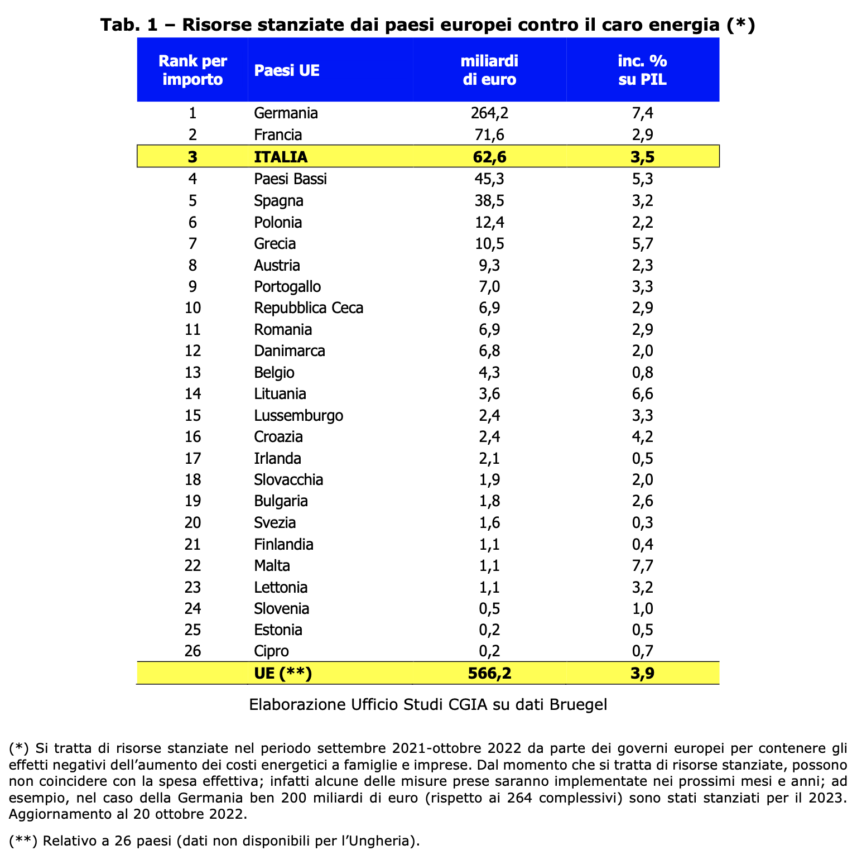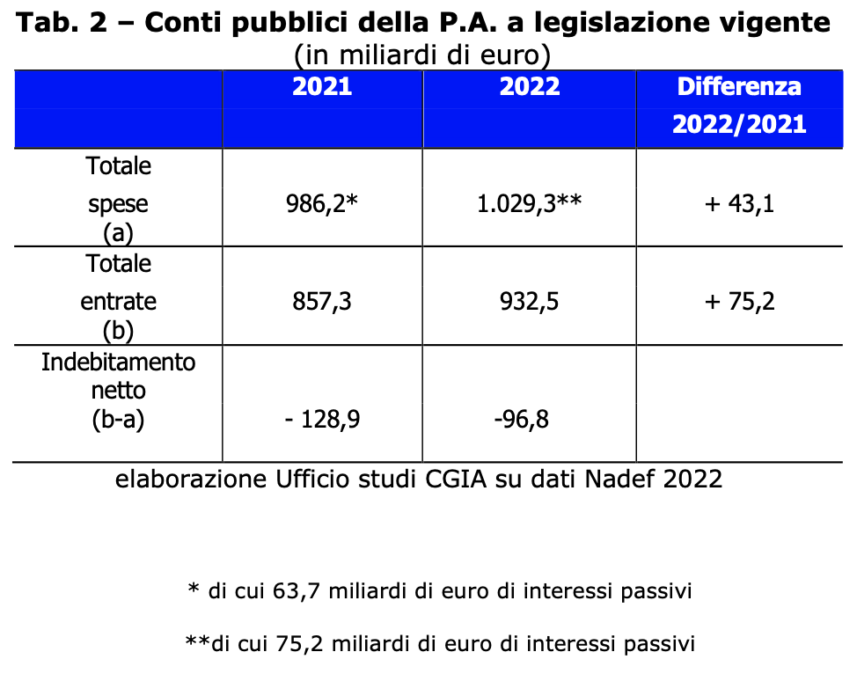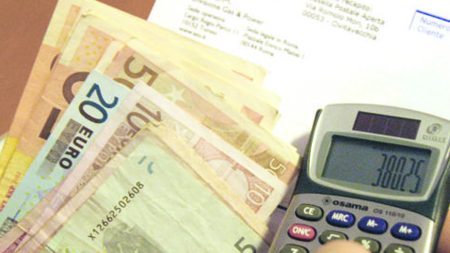To counter the high bills, in the EU27 only the executives of Germany and France have allocated more resources in absolute terms than those put in place by the Draghi government. If between September 2021 up to now Berlin has approved spending over several years equal to 264,2 billion euros, Paris, on the other hand, has allocated 71,6 billion, while the Draghi government has disbursed 62,6 billion. To say it is the Studies Office of the CGIA that processed the Bruegel data.
Although disbursed over several years, it is true that German families and businesses will be able to benefit from a total amount of aid equal to 7,4 per cent of GDP. However, it should still be remembered that Germany is the first industrial power of the European Union, has 24 million inhabitants more than our country and usually faces, from a meteorological point of view, winter months that are much more rigid than ours.
If, on the other hand, we analyze the resources allocated to mitigate the cost of electricity and gas bills in relation to GDP, the only country that precedes the Germans is Malta (7,7 per cent). Followed, as we said, are Germany (7,4), Lithuania (6,6), Greece (5,7) and the Netherlands (5,3). In total terms, in this last year the 26 EU countries (data from Hungary are not available) have made 566,2 billion euros available to households and businesses, equal to 3,9 per cent of European GDP.

Gas prices are falling, but we need to produce more
Only after having defined in the last European Council a possible agreement on the introduction of a temporary ceiling on the price of gas, on joint purchases and storage, in the last week the cost of this raw material has dropped below 100 euros per MWh. It is not certain that the situation is in the process of being resolved, however it is a very positive sign that goes in the desired direction. However, if the question linked to high prices seems to be "recomposing", the big problem of insufficient extractive supply remains. Despite the excellent work carried out by the Draghi government on the diversification of gas supplier countries, the big unknown linked to Russian retaliation still remains. If the latter were to eliminate energy flows next winter, then we would be forced to ration the use of gas and, consequently, also electricity for both households and businesses. It is a scenario that we must avert because it could affect not only our country, but the whole of Europe, with very worrying social and economic consequences. This is why it is important to return to extracting more gas, also in Italy, also asking the Netherlands and France to align themselves with this new energy policy.
Where to find the aid money?
To counter the expensive bills, the Meloni government could dispose for this last part of 2022 an amount not exceeding 15 billion euros, of which 10 bequeathed by the Draghi Executive and another 5 that should come from the EU. Indeed, Brussels could allow individual countries to recover the 2014-2020 structural funds not yet spent or not committed in a binding manner. If, as probable, the new government will extend the measures approved with the Aid ter decree (cost of about 5 billion euros) also for next December, in our opinion the other 10 billion available are certainly significant, but not sufficient. to significantly sterilize the extra costs that families and businesses will be required to bear in this last part of the year.
So, where to find in a very short time further resources to mitigate the energy price increases which, according to our estimate, should amount to at least 20 billion euros? In such a short time this could only happen through a budget variance, a hypothesis that, however, the new executive does not seem to want to pursue.
And in 2023?
If the executive's intention seems to be not to resort to new debt, the resources to contain the expensive bills can only be recovered through a cut in public spending, given that it seems unthinkable to be able to act on the revenue front. According to the data published in Nadef 2022, this year the total public expenditure (thus including also the interest expense) should exceed the one trillion ceiling: reaching 1.029 billion euros. A figure, the latter, up by 43,1 billion compared to 2021. Final revenues, on the other hand, will reach the threshold of 932,5 billion euros this year, up by 75,2 billion compared to 2021.

Both in terms of expenditure and income, the effect of inflation made itself felt, contributing to significantly fuel the increases. Now, bearing in mind that almost 90 percent of total expenditure is almost incompressible (pensions, social benefits, health care, interest payable, salaries of public employees, intermediate consumption, investments, etc.), it will not be easy at all with the next law. budget "recover" the resources to be allocated to contain the costs of 2023 bills to households and businesses. On the “spending review” front, in fact, the results we have obtained in the last 10 years have been irrelevant and, on the horizon, we do not seem to see any signs that suggest a desirable turnaround.
